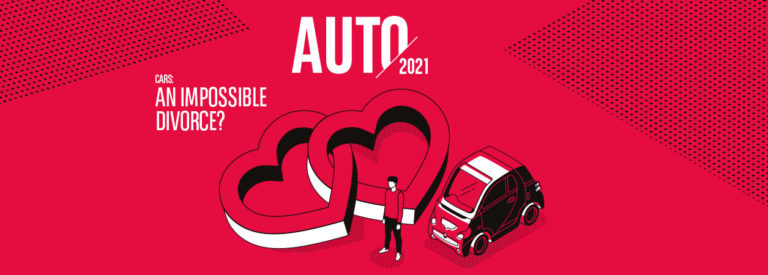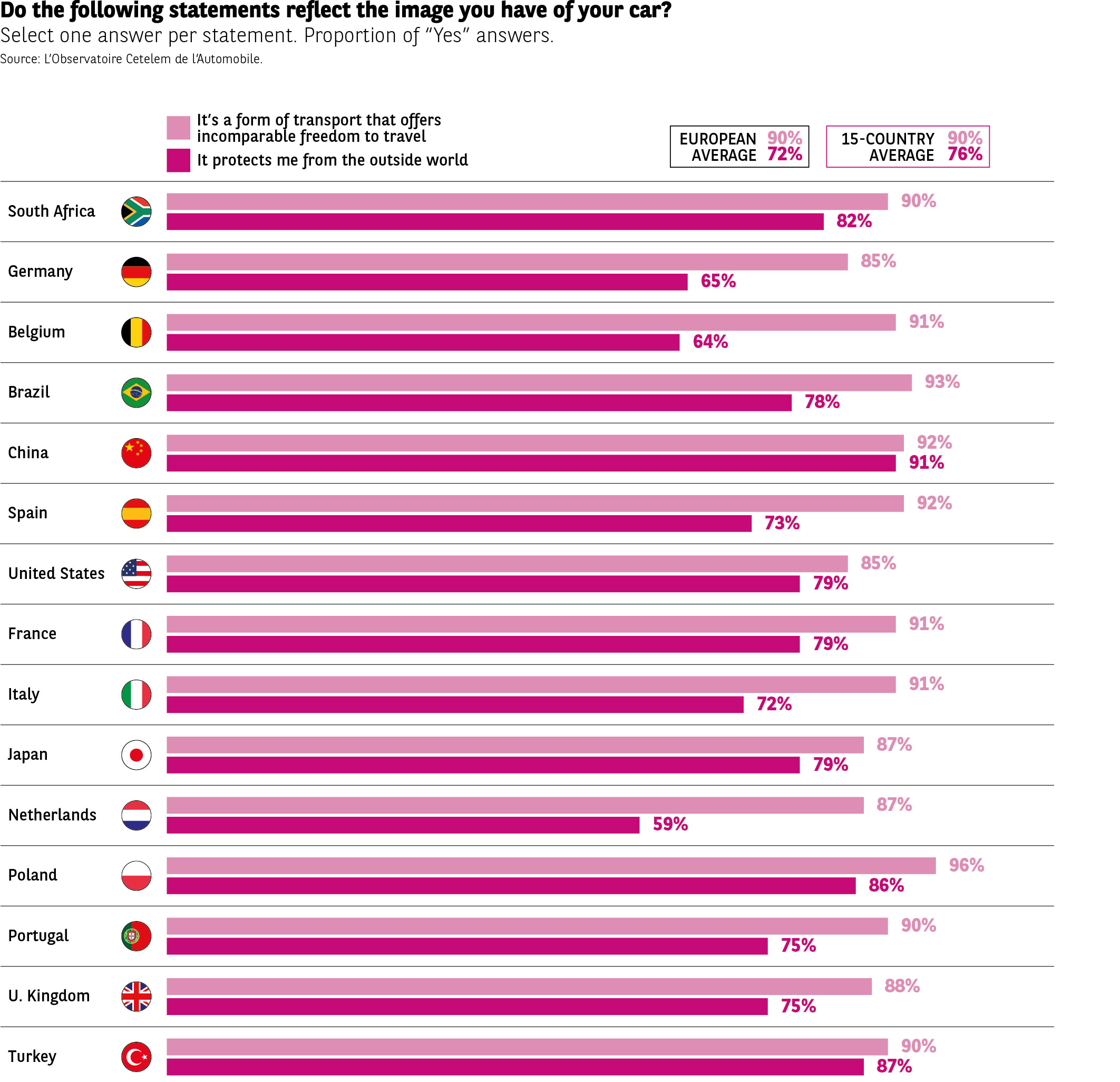A place of refuge


So they represent freedom, but they also serve as a place of refuge. Indeed, 76% say that when they are in their car they feel protected from the outside world. Again, this is a feeling that has intensified over the course of the crisis according to 46% of respondents.
The familiar pairing formed by China and Turkey are joined by Poland, Brazil and France in espousing these values of freedom and protection (Fig. 30). The Dutch are the least likely, by some distance, to view their vehicles as a place of refuge, a further sign that cars play a less crucial role in the daily lives of people in the Netherlands.


